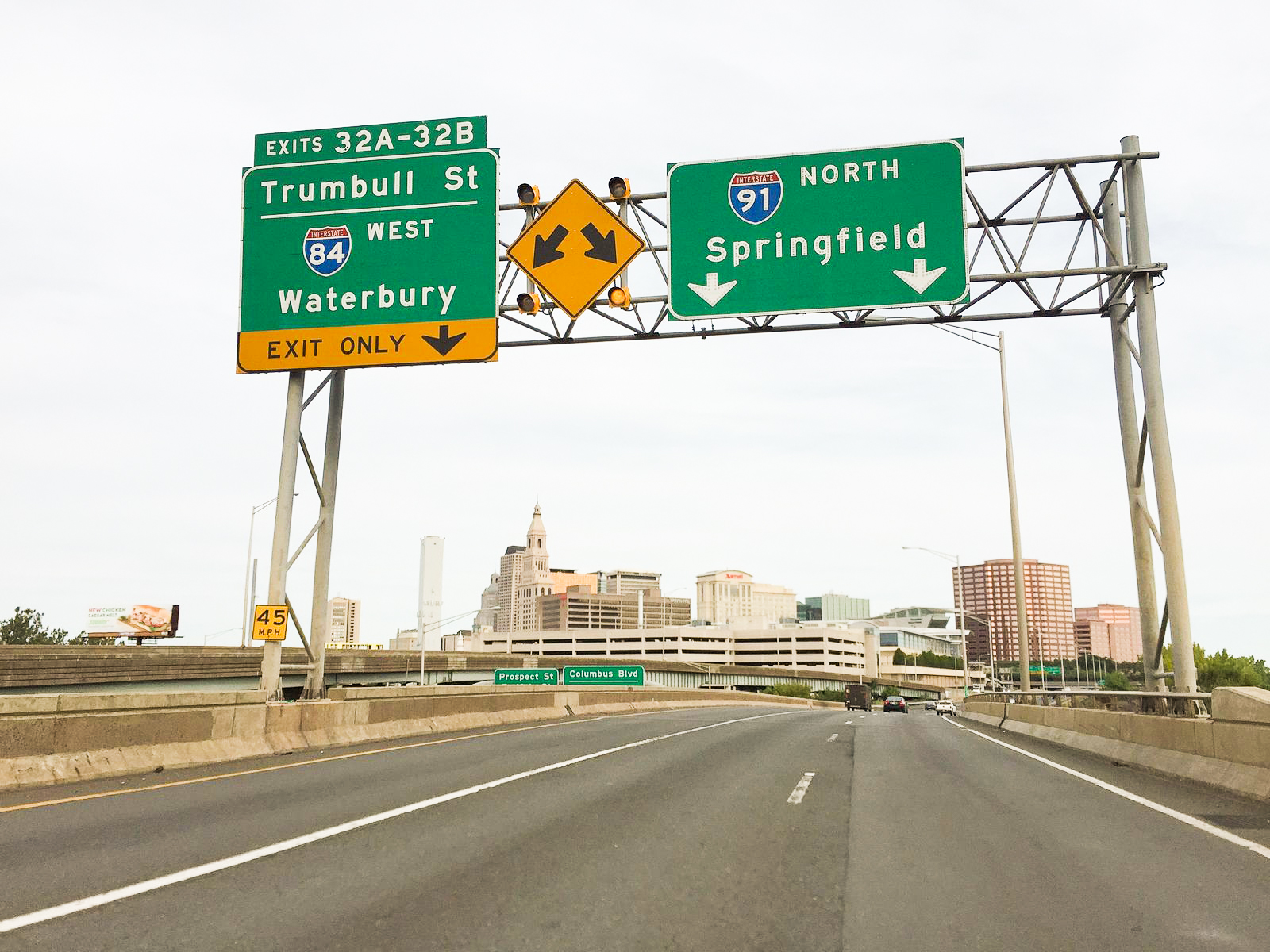
Wikimedia Commons
Gov. Ned Lamont released his long-awaited $21 billion transportation plan last week, immediately prompting criticism from Republicans.
The plan, Connecticut 2030 — the latest development in a long series of drama between Lamont and state legislators — allocates $21 billion over 10 years to fix bridges, repair congested traffic areas and speed up rails. Earlier this year, during the 2019 legislative session, Lamont pushed for adding tolls to Connecticut’s highways, which faced opposition from Republicans.
Now, five months after the last legislative session concluded, Lamont’s new plan includes some electronic tolls once again. Still, only with 14 toll gantry locations, it is a scaled-back version of his previous plan of 53. But on Wednesday, amid broad criticism from Republicans, Senate Democrats announced they would likely not support tolls, urging the governor to go in another direction to fund his plan.
Without the support of Senate Democrats who hold a 22–14 majority, Lamont would struggle to implement his plan. Senate Republicans responded on Thursday, offering their own transportation plan without tolls.
“I continue to have serious concerns about tolls,” Senate Minority Leader Len Fasano ’81, R-North Haven, said in a public statement following the release of Lamont’s plan. “Republicans agree with Gov. Lamont that we need to invest in transportation to support economic success and encourage job growth … where we have always differed is how to pay for it.”
The Republican plan would cut total spending from $21 billion over 10 years to $18 billion. Instead of installing tolls on Connecticut’s highways, the caucus suggested that Connecticut take $1.5 billion out of the state’s “rainy day fund,” part of which would go to transportation. Their plan also includes borrowing about $100 million a year to pay for the transportation upgrades.
Democrats had mixed responses to the Republican plan on Thursday. While they expressed appreciation for Republicans’ willingness to come to the negotiation table, the Democrats also warned about the risks of taking money out of the rainy day fund.
“Every dollar we invest in our infrastructure is a dollar we invest in our future. I am not surprised Senator Fasano also recognizes the critical importance of those investments,” Lamont said in a written statement. “While I appreciate Senator Fasano’s proposal to partially fund much-needed infrastructure investments, taking money out of the Rainy Day Fund is a risky proposition that requires serious evaluation.”
Now, the future of the two plans is uncertain. Lamont released his plan in hopes of calling a special session before Thanksgiving, if he had the votes, in order to pass a bill before the short 2020 legislative session. Now, without support for tolls from Senate Democrats, that timeline looks unlikely. Still, the caucus led by Senator Martin Looney, D-New Haven, did offer support for Lamont’s transportation spending project on Wednesday and agreed with him that the legislature should deal with this issue before 2020, only disagreeing about tolls. Lamont spent two hours in discussion behind closed doors with Senate Democrats on Wednesday, as negotiations are expected to continue in the coming days.
Although Democrats hold significant majorities in both the House and Senate, there is considerable desire to find a bipartisan deal. Looney is concerned about holding onto the Democratic Senate majority in 2020 and is worried that pushing a partisan transportation plan including tolls could damage some of his members’ electoral chances. Senate Democrats said that instead of tolls they were considering revenue sources such as taxes on marijuana legalization and sports betting to fund transportation. On Thursday, Looney said he appreciated Fasano’s efforts to find a bipartisan solution.
“I look forward to coming to a bipartisan solution on transportation which accomplishes all the critical projects in the CT 2030 transportation plan presented by Governor Lamont,” Looney said in a written statement. “Connecticut succeeds best when both parties work together.”
Fasano said that his plan incorporates all of Lamont’s transportation goals, while shifting the mechanisms used to pay for it. On Thursday, House Republican Minority Leader Themis Klarides, R-Derby, also announced her intention to release a transportation plan, meaning that there will be at least three plans in the mix when lawmakers and the Governor work to find a solution. Her plan, according to the Hartford Courant, will also not contain tolls.
Although since early 2019, Lamont has consistently proposed using tolls to raise funds for transportation, the governor may be open to compromise especially amid clear opposition from Senate Democrats. Each caucus is now internally calculating costs and deciding how to move forward, but soon the governor is expected to conference with leaders in all four caucuses. Although a Thanksgiving timeline now appears unlikely, there is still some hope that a solution could be found before 2020. Without tolls, the bill would be mostly a large spending bill, which is something the legislature often finds ways to agree on.
Similar to Lamont and Looney, Speaker of the House Joe Aresimowicz, D-Southington, said in an email to the News that he was happy that Republicans have publicized a plan, but worried about their solution to funding it.
“I am glad that Republicans have put a plan on the table. Our transportation infrastructure is decaying and in need of historic investments so it is important to listen to all ideas and potential solutions,” he said. “I do have concerns about such a significant raid on the rainy day fund as the cornerstone of the funding plan.”
The 2020 Connecticut Legislative Session begins on Feb. 5.







